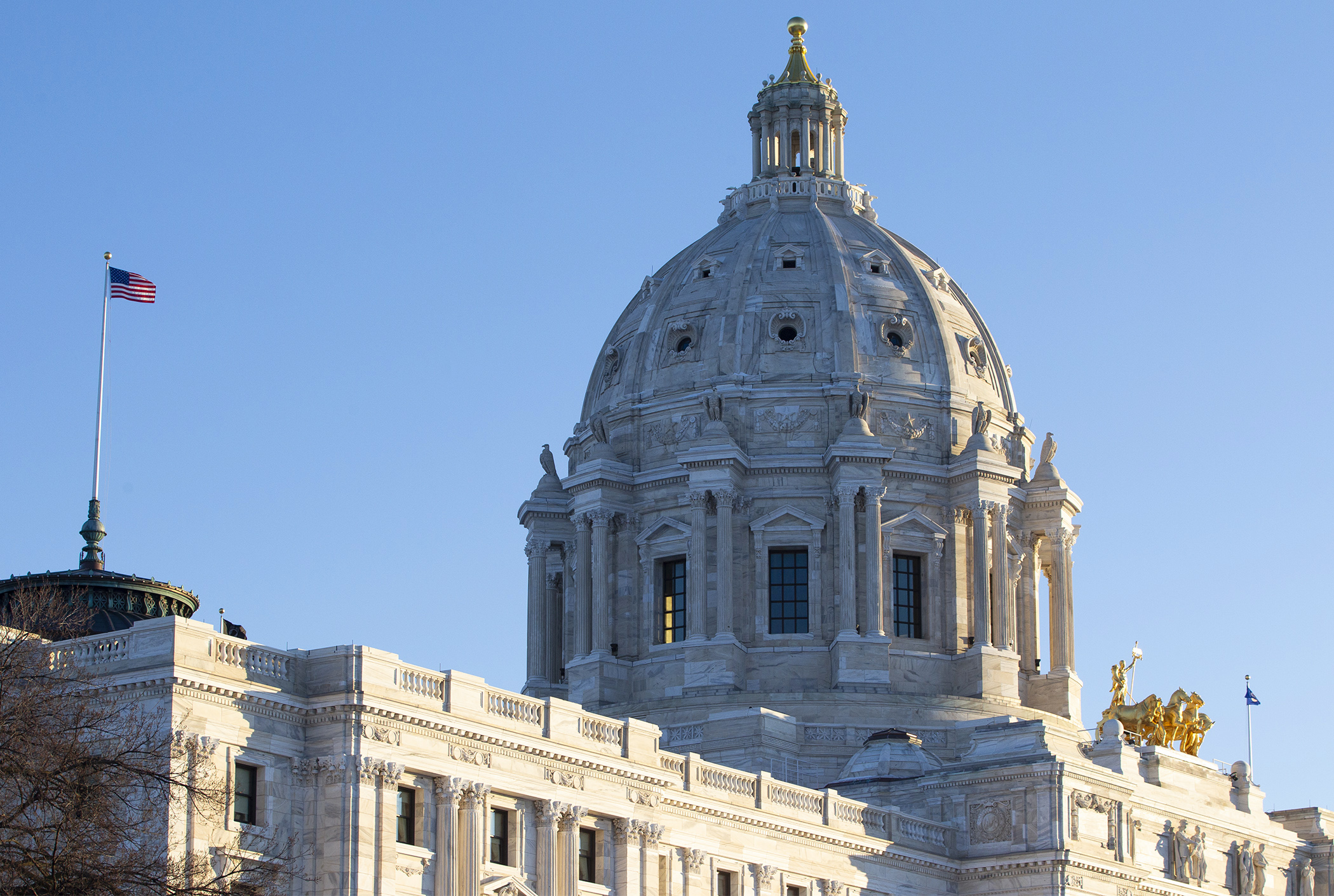Meat inspections, pesticide management would get boost under omnibus agriculture finance bill

Farmers, groundskeepers and homeowners could pay more for pesticides. Small meat and poultry processors could get more timely inspections. Minnesota agriculture producers could have an easier time breaking into foreign markets.
These are among the potential outcomes of the omnibus agriculture finance bill.
HF1524, sponsored by Rep. Mike Sundin (DFL-Esko), was laid over Monday by the House Agriculture Finance and Policy Committee. Its companion, SF958, is sponsored by Sen. Torrey Westrom (R-Elbow Lake) and awaits action by the Senate Agriculture and Rural Development Finance and Policy Committee.
The bill hews closely to Gov. Tim Walz's proposed Department of Agriculture budget for fiscal years 2022 and 2023.
It would maintain funding for Minnesota's noxious weed program at $450,000 annually, and it would fund a trade representative in Taiwan, one of the largest importers of U.S. agricultural products.
It would also provide additional funding for meat and poultry inspection, one-time funding for industrial hemp IT development and continued funding for mental health outreach, allowing a 24-hour hotline to continue operation.
Additionally, the bill would earmark $1 million annually for county fairs, dedicate $4 million to biofuel infrastructure financial assistance and bolster a low-interest loan program for farmers.
The bill also has four statutory changes, including one that would increase the rate of a tax specific to pesticide sales to 0.9%, up from 0.55% for agricultural pesticides and from 0.5% for nonagricultural pesticides.
The increase would mean a farmer would pay a $9 tax on a $1,000 of agricultural pesticides instead of $5.50.
The Department of Agriculture estimates the increased tax would generate approximately $2.25 million annually beginning in fiscal year 2023. It would use the money to increase urban pesticide education and purchase equipment and hire staff needed to ensure that lakes, rivers and drinking water sources have safe pesticide levels. It would also use the funds to hire personnel and buy equipment needed to monitor for three additional chemicals, as recommended by the Office of the Legislative Auditor.
Crop producers say they oppose raising the pesticide tax because it's already higher in Minnesota than in surrounding states and because funds for the pesticide-monitoring program could be raised elsewhere.
Rep. Rick Hansen (DFL-South St. Paul) said the pesticide fees haven't been raised in a long time.
***
The following are selected bills that have been incorporated in part or in whole into the omnibus agriculture finance bill:
- HF1 (Noor)
- HF14 (Ecklund)
- HF790 (Hanson)
- HF1059 (Burkel)
- HF1433 (Anderson)
- HF1520 (Haley)
- HF1547 (Lueck)
- HF1604 (Anderson)
- HF1866 (Mueller)
- HF2179 (Bennett)
- HF2185 (B. Olson)
- HF2186 (B. Olson)
- HF2187 (B. Olson)
Related Articles
Search Session Daily
Advanced Search OptionsPriority Dailies
Speaker Emerita Melissa Hortman, husband killed in attack
By HPIS Staff House Speaker Emerita Melissa Hortman (DFL-Brooklyn Park) and her husband, Mark, were fatally shot in their home early Saturday morning.
Gov. Tim Walz announced the news dur...
House Speaker Emerita Melissa Hortman (DFL-Brooklyn Park) and her husband, Mark, were fatally shot in their home early Saturday morning.
Gov. Tim Walz announced the news dur...
Lawmakers deliver budget bills to governor's desk in one-day special session
By Mike Cook About that talk of needing all 21 hours left in a legislative day to complete a special session?
House members were more than up to the challenge Monday. Beginning at 10 a.m...
About that talk of needing all 21 hours left in a legislative day to complete a special session?
House members were more than up to the challenge Monday. Beginning at 10 a.m...